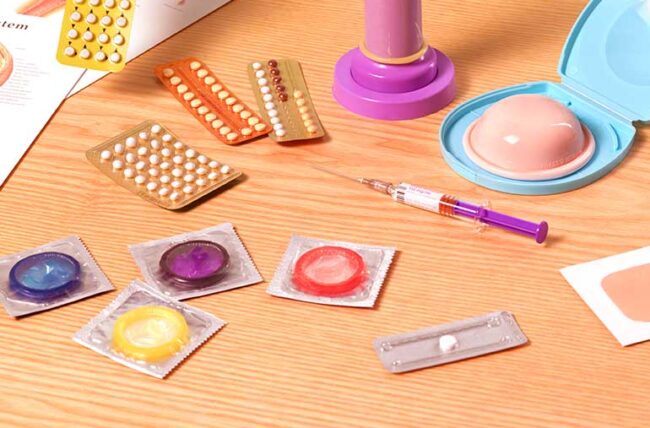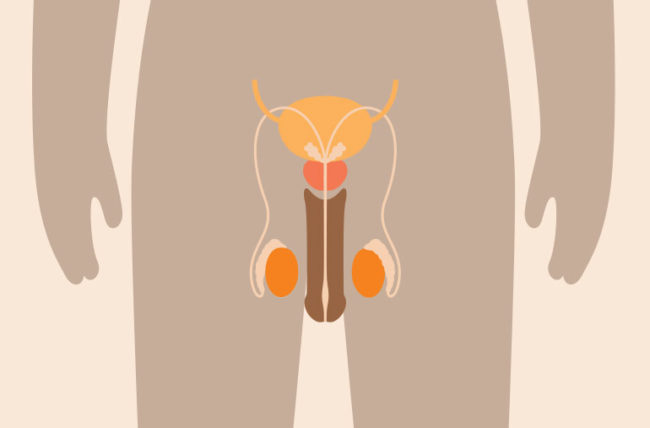When discussing safe sex, condoms are frequently mentioned. They’re an effective way to prevent sexually transmissible infection and birth control.
There’s a lot of confusion about condoms. Are they really effective against herpes infection? Do two condoms work better than one? Is it possible that some penises are “too large” to fit every condom? Evan Cottrill is a physician assistant and expert in sexual health. He helps dispel common condom myths.
What types of condoms are there?
Let’s start with some basics. What are the different types condoms available? There are basically two types of condoms:
- Wearing external condoms over the penis will collect ejaculation liquids.
- Inner condoms act as a barrier to prevent ejaculation liquids from entering the body.
There are also Dental Dams that act as a barrier for any oral sex.
All condoms are effective in reducing the risk of transmitting STDs via bodily fluids. Condoms can also help prevent pregnancy because they stop semen from entering your vagina. A condom is not only effective in preventing pregnancy but also STIs. It’s also true when you are having anal sexual activity.
Cottrill explains nine facts about condoms, and dispels some myths.
What is the difference between lambskin and latex condoms
Condoms made of latex, polyurethane, and other synthetic materials protect you against STIs. Lamb cecum condoms (also known as natural membrane condoms or lambskin Condoms) can let viruses through.
Lambskin condoms will do if you are only interested in preventing pregnancy. If you’re looking for protection against STIs, a polyurethane or latex condom is the best choice.
Can some people use condoms because they are too large?
Don’t believe anyone who tells you I don’t need condoms. This is a myth.
Cottrill says that “anatomical sizes vary, of course.” There is a type of condom for every individual.
Most penises don’t require a special condom size. There are also larger and smaller condoms available if necessary. You can search online if you cannot find the right size at your local supermarket.
Do condoms prevent herpes?
Cottrill says that condoms can protect you from herpes if used correctly and consistently.
It’s likely that people didn’t use condoms correctly or enough to create the myth that they don’t provide protection against Herpes. Herpes can be a chronic condition, which spreads by close contact with a person who has the disease. This is true even if they are not experiencing an outbreak or show no symptoms. Herpes is also spread by oral sex, sharing sex toy and sharing sex toys. It’s therefore important to use a condom or dental dam when engaging in these activities.
Cottrill says that condoms should be used for any type of sexual activity, including oral sex.
Do condoms protect against HIV?
Cottrill says that “condoms reduce the risk of HIV transmission.”
The condom material is important when it comes time to protect against viral STIs such as HIV or hepatitis C. Avoid lambskin and opt for latex or polyurethane condoms instead.
Do condoms protect against HPV?
Condoms do protect against HPV (human papillomavirus).
Cottrill says that condoms can be used to protect against any STI, bacterial or viral. He emphasizes again that lambskin condoms are not the best choice.
Does it harm to carry a condom with you?
Cottrill says, “This question is very popular.” “I don’t recommend storing condoms in your wallet, as heat will lower the quality over time. The packaging can also be torn.
Condoms are also not recommended to be kept in your car. The sun can make it very hot. Store condoms in an area that is cool and where they won’t be crushed, folded, or punctured.
Should you use two condoms when using two condoms
Two condoms might seem like a better option than one – double the protection, or something similar. It’s the exact opposite.
Cottrill says, “Never use two condoms simultaneously.”
The friction during sex may cause the condoms to weaken and break. For the same reason, you don’t want your partner to be wearing an internal condom while you are wearing external condoms. It is best to use one condom per time.
Can I use any lube on condoms?
The type of condom that you use will influence the lubricant that you choose. Stick to silicone or water-based products if you are using latex. Avoid using oil-based products such as Vaseline(r), lotions, massage oils, or coconut oil. These can cause the latex to weaken and tear.
You can still use oil-based lubricants on condoms that are made from polyurethane, or synthetic materials. These won’t degrade as quickly.
Does the expiration date of condoms matter?
Condoms do expire and it is important to check the dates.
Cottrill warns that it’s better to avoid using condoms older than the expiration date on the package, or those older than five years.
A condom that is older will be more likely to tear when sex occurs.
Tips on choosing and using condoms
Consider these factors when choosing a condom:
- Size Regular sized external condoms are fine for the majority of people. You can also find different sizes, if needed, at your local pharmacy or online.
- Material Lambskin Condoms are good for preventing pregnancy, but not so great for STI prevention. If you’re looking to stop the spread of STIs, latex and polyurethane are your best options.
- Allergies Some people have an allergy to latex. Use condoms that are made from polyurethane, or other synthetic materials if you or your partner have an allergy to latex.
Use a new condom each time, no matter which type you choose. Also, follow the instructions on the packaging to reduce the chances of leakage, breakage, or slippage. Stop immediately if your condom tears or breaks during sex and replace it with another condom. Make an appointment with a doctor if you are concerned about STIs or possible pregnancy.
The Centers for Disease Control and Prevention has a useful guide for external condoms.




















